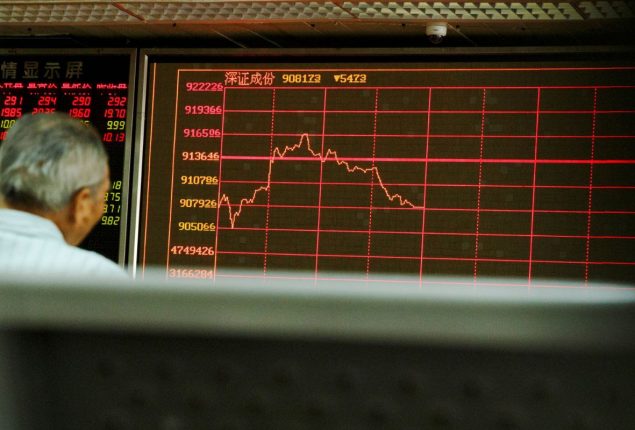China Issues Warning on ‘Exotic Beauty’ Traps by Foreign Spies
China warns of foreign spies using allure tactics. Li Si blackmailed after...

China has tightened its stock market regulations in response to economic sell-off
The government of the world’s second-largest economy has implemented stricter rules in the financial industry to curb a growing sell-off. Chinese and Hong Kong stocks have witnessed a loss of nearly $6 trillion (£4.7 trillion) since their most recent peak three years ago.
The China Securities Regulatory Commission (CSRC) asserts that these measures aim to establish “a fairer market order.” Effective from Monday, the new rules will impose limits on what is known as “short-selling.”
Short selling involves traders betting that a share or other asset will decrease in value. They borrow the asset, sell it immediately, and aim to buy it back later at a lower price, thereby making a profit from the difference.
“Short Selling Advocates Highlight Its Role in Price Discovery, Critics View It as a Detrimental Trading Strategy”
While defenders of short selling argue that it contributes significantly to determining the true value of an asset in financial markets, some critics perceive it as a ruthless trading strategy that undermines companies.
The China Securities Regulatory Commission (CSRC) has recently made an announcement, following a series of informal measures introduced over the last year, acknowledging that these measures did little to bolster financial markets. The CSRC stated that effective today, there would be a “complete suspension of the lending of restricted stocks,” and additional restrictions on securities lending would be implemented from March 18.
Premier Li Qiang urged authorities last week to take more “forceful” measures to stabilize share prices in response to the ongoing sell-off in China’s stock market. Investors are expressing concerns about the possibility of prolonged slow economic growth in the country.
At the core of China’s economic challenges lies its property market, which, for two decades, experienced significant growth and accounted for a third of the country’s total wealth. However, when the government imposed borrowing limits on developers in 2020, they found themselves owing billions that they could not repay.
Catch all the International News, Breaking News Event and Latest News Updates on The BOL News
Download The BOL News App to get the Daily News Update & Follow us on Google News.